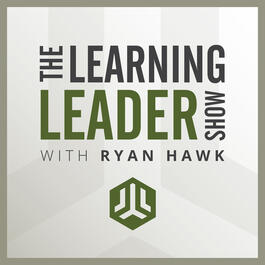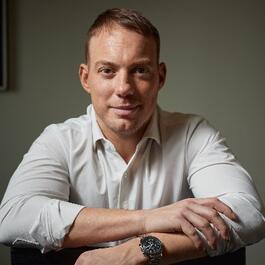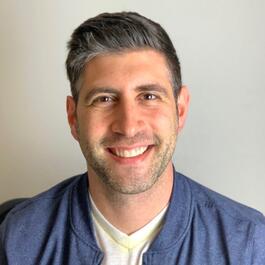
321: Jay Acunzo - Why You Should Question Best Practices & Act Like An Investigator
The Learning Leader Show With Ryan Hawk Full show notes can be found at www.LearningLeader.com #321: Jay Acunzo Jay Acunzo is the founder of the media company Marketing Showrunners, author of the book Break the Wheel, and the host and producer of more than a dozen docuseries about creativity at work. He's a former digital media strategist at Google, head of content at HubSpot, and Vice President of Content and Community at the VC firm NextView.Jay's work has been cited in courses at Harvard Business School and by writers at the New York Times, the Washington Post, FastCompany, Fortune, Entrepreneur, and more. Salesforce called him "a creativity savant," while the American City Business Journals named him as one of Boston's "50 On Fire." Show notes: Leaders who sustain excellence = Curiosity gets you the ability to constantly reinvent yourself Ex: A basketball player who works on a new part of his/her game every summer (constantly adding to the game) Intrinsic motivation Telic type -- Get to level 1, 2, and going... "When you're curious you're constantly turning it over and over..." Be a sensitive skeptic -- Keeping dispirit ideas at the same time "You have to be open and at the same time question everything." Anthony Bourdain -- An inspiration -- Why does that inspire me? What do I bring to the table? Be open to all, but skeptical Bourdain -- He's able to sit with anybody and pull out emotional moments from what seemed a normal day. Parts Unknown is not about geography, but with people and their emotions. "We experience his work with lots of emotion." Best interviewers: 2 types: Conversationalists: Bourdain, Bill Simmons, Conan -- They aren't about the clever question, it's about the environment they create, the trust they build. Questioners: Terry Gross, Kara Swisher - They are genius in the simple questions, and the follow ups... How do you feel leading up to a big moment? A specific anticipatory feeling. Before getting on stage, think, "Wow, I get to do this." Not, I have to do this. Process to prepare for a speech: Wind down before the gig Rehearse in the office days before, film it, use it as game tape. Practice, practice, practice. Create muscle memory -- "Don't memorize it, memorialize it." "When I make something, I want to feel something. I have to put in the reps." Thoughts on "best practices?" "The image in my head is, 'that's the way we've always done things.'" Must rather find the best approach How to do this? Don't run a faulty equation for your work Don't build on lagging indicators Don't miss variables... You must know the current context "Stop acting like an expert, start acting like an investigator." The 3 Psychological Barriers: Why we aren't making great decisions: The Pike Syndrome: A feeling of powerlessness after repeated failure (named for the experiment of conditioning a pike to not eat minnows by hiding those minnows behind glass). Solution: "first-principle"insights about customers The Foraging choice: The decision between exploiting your current position or exploring other possibilities (named for the idea that human decisions under high-stress condition often mirror foraging behavior in animals. Solution: "Aspirational anchors" for you and/or your team Cultural Fluency: Your behavior when the world unfolds according to the expected norm (a concept honed by a man who ran experiments on his friends and family at a picnic). Solution: "trigger questions" to add cultural disfluency How to help people develop intuition? Intuition is not an instant clarity generator -- "The ability to consider the environment." --> Ask great questions about context. Break into knowable parts You -- People doing work Customers -- Stakeholder -- who the work is for Resources -- to make it happen Ask useful questions: "Set aside the desire to be right for the desire to get it right." Common mistakes new managers make: They "have all the answers." Ask questions, Remove ego. Emotion based decisions -- Surround self with the right people to help with deficiencies Qualities Jay looks for when making hiring decisions: Can you do the work? Can I understand who you are? Skip right to the good stuff -- "What's the best story you've ever written?" Want people with an intrinsic desire to create -- Love side projects like his sports blog Advice: Career path is BS -- It's laughable. Your 20's are about exploration... "Try a lot of stuff." Do side projects Bad advice: "The idea that being the best is a real thing. It's ridiculous." Focus on your own body of work, not others.
From "The Learning Leader Show With Ryan Hawk"




Comments
Add comment Feedback